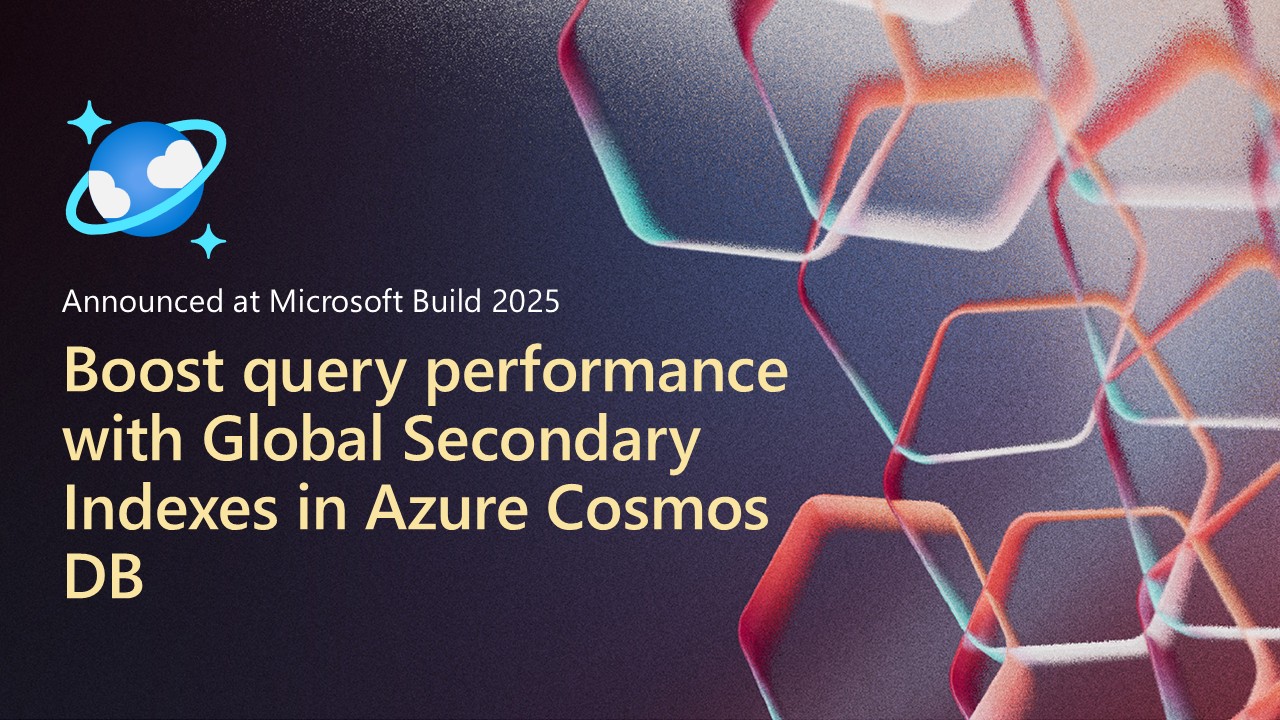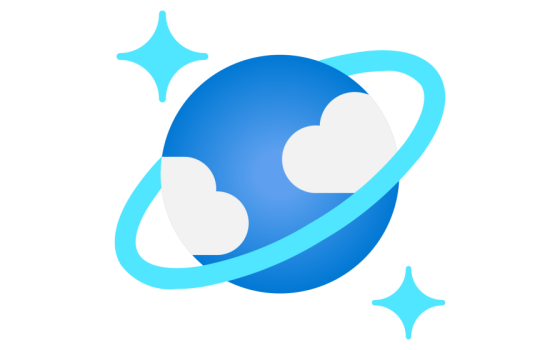Azure Cosmos DB Blog
The latest news, updates and technical insights from the Azure Cosmos DB team
Latest posts

Accelerating MongoDB Development on Azure: What’s New at Microsoft Build 2025
Microsoft Build 2025 is underway in Seattle, bringing developers together to shape the future of cloud-native app development. If you build MongoDB workloads in Azure, this year’s updates give you even more tools to accelerate development. We’ve streamlined how you build and modernize MongoDB applications in the cloud with our managed service- vCore-based Azure Cosmos DB for MongoDB- powered by DocumentDB, our fully open-source, MongoDB-compatible, multi-cloud engine. Whether you're driving real-time workloads, creating AI-powered chatbots, or scaling mission-critical applications, here’s everything new for M...

New Generally Available and Preview Search Capabilities in Azure Cosmos DB for NoSQL
At Microsoft Build 2025, we're excited to announce general availability of search capabilities for Azure Cosmos DB, including full-text and hybrid search, enabling developers to build highly performant, scalable, and intelligent applications. We're also introducing new preview enhancements such as multi-language support and fuzzy search, further enriching search accuracy and flexibility across the globe. To streamline developer productivity, we're announcing improved developer tooling, featuring Entity Framework integration and robust LINQ support for Azure Cosmos DB search capabilities. Additionally, Filtered Ve...

What’s new in Azure Cosmos DB for NoSQL at Microsoft Build 2025
Building modern, scalable applications often comes with the challenge of managing and scaling your database infrastructure. That’s exactly why we built Azure Cosmos DB – to provide a fast, flexible NoSQL database service that frees you from the operational heavy lifting. With automatic scaling, built-in high availability, and consistent single-digit millisecond performance at any scale, Azure Cosmos DB lets you focus on innovating rather than database administration. Today, at the Microsoft Build 2025 conference, we're excited to announce powerful new features to Azure Cosmos DB aligned to four key investm...

Boost Query Performance with Global Secondary Indexes in Azure Cosmos DB
Global secondary indexes for Azure Cosmos DB—now in Public Preview—make it easier to query data efficiently, especially as your datasets grow. Distributed databases like Azure Cosmos DB scale with dataset growth by partitioning data across multiple physical machines. When your queries include the partition key, the client routes them directly to the appropriate partition. Queries that include the partition key remain low-latency regardless of how many partitions exist. But in real-world applications, or in the case of AI apps and agents, you often need to query data without including the partition key. Th...

Elevating Azure Cosmos DB Resilience with Per Partition Automatic Failover
Announcing Per Partition Automatic Failover for Azure Cosmos DB Today, we’re excited to announce the preview of Per Partition Automatic Failover (PPAF) for Azure Cosmos DB, a significant improvement to our single-region write accounts that boosts availability and resilience. If you rely on Azure Cosmos DB to be “always on” for your mission-critical applications, this new feature is built for you. Per Partition Automatic Failover enables Azure Cosmos DB to recover more quickly and efficiently during regional outages. Azure Cosmos DB already supports active-active deployment using multi-writes. With PPAF, we no...

Azure AI Foundry Connection for Azure Cosmos DB and BYO Thread Storage in Azure AI Agent Service
We’re announcing new integrations between Azure Cosmos DB and the Azure AI ecosystem: the Azure AI Foundry Connection for Azure Cosmos DB and bring-your-own thread storage in Azure AI Agent Service. These capabilities make it easier for developers to build enterprise-ready agentic applications using their own data stored in Azure Cosmos DB. Azure AI Foundry Connection for Azure Cosmos DB The Azure AI Foundry Connection for Azure Cosmos DB for NoSQL is a foundational step toward enabling rich data scenarios for AI and agentic applications. This integration opens the door to advanced data capabilities within the ...

Build 2025 Preview: Transform Your AI Apps and Agents with Azure Cosmos DB
Microsoft Build is less than a week away, and the Azure Cosmos DB team will be out in force to showcase the newest features and capabilities for building AI apps and agents with scalable, fast, high-performance data. Whether you’re in person at the Seattle Convention Center or watching the live or on-demand digital show, we can’t wait to show you what we’ve been up to. Add these breakout, demo, and labs sessions to your Build schedule: Monday, May 19th 🗓️ 11:45am PT: What’s New in Microsoft Databases: Empowering AI-Driven App Dev (BRK204) with Shireesh Thota, Corporate VP of Engineering – Databases...

Fabric Mirroring for Azure Cosmos DB: Public Preview Refresh Now Live with New Features
We’re thrilled to announce the latest refresh of Fabric Mirroring for Azure Cosmos DB, now available with several powerful new features that enhance your data analytics infrastructure. This update significantly improves the experience, making it easier than ever to replicate your Azure Cosmos DB data into OneLake in Microsoft Fabric—giving you more control and flexibility over your mirrored databases. New Features Entra ID Authentication Support for Source Connections Azure Cosmos DB Mirroring now supports authentication via Microsoft Entra ID (formerly Azure AD), in addition to account keys. This enhancem...

Azure Cosmos DB with DiskANN Part 4: Stable Vector Search Recall with Streaming Data
Vector search with Azure Cosmos DB In Part 1 and Part 2 of this series, we explored vector search with Azure Cosmos DB and best practices for scaling it to 1 billion vector datasets while maintaining low query latency. In Part 3, we saw how we can create efficient sharded DiskANN indices for multi-tenant apps. In Part 4, we’ll look at the effect that streaming ingestion, a stream of inserts, deletes, and replaces of vectors in the database, has on the quality of the vector index. This is unlike the often reported single-shot ingestion where data is ingested once in bulk and recall is measured at the end whe...
